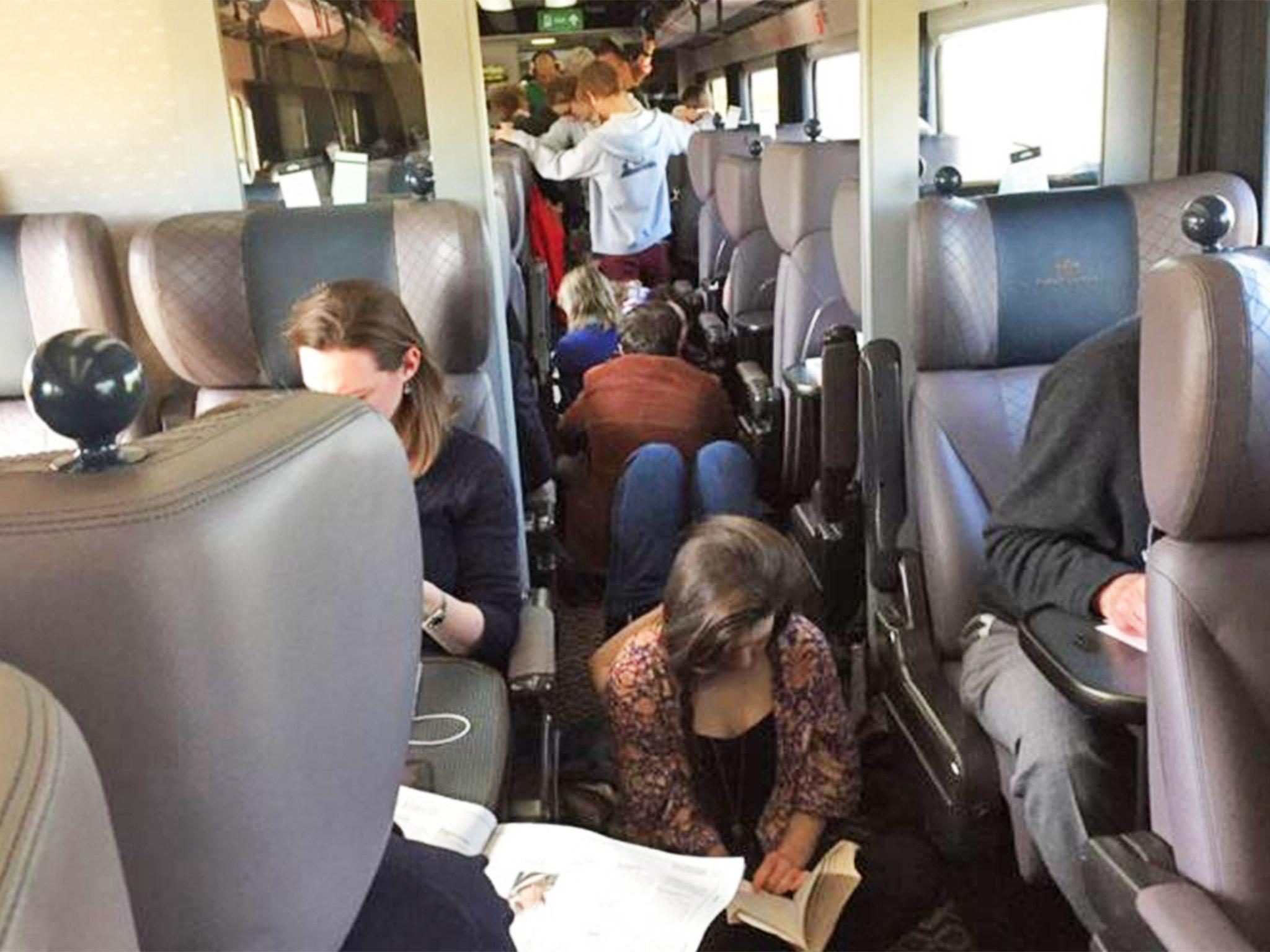Train overcrowding is at its worst since figures first collected, warns Labour
The 10 most congested routes packed in almost twice as many passengers as they are designed to carry last year

Your support helps us to tell the story
From reproductive rights to climate change to Big Tech, The Independent is on the ground when the story is developing. Whether it's investigating the financials of Elon Musk's pro-Trump PAC or producing our latest documentary, 'The A Word', which shines a light on the American women fighting for reproductive rights, we know how important it is to parse out the facts from the messaging.
At such a critical moment in US history, we need reporters on the ground. Your donation allows us to keep sending journalists to speak to both sides of the story.
The Independent is trusted by Americans across the entire political spectrum. And unlike many other quality news outlets, we choose not to lock Americans out of our reporting and analysis with paywalls. We believe quality journalism should be available to everyone, paid for by those who can afford it.
Your support makes all the difference.Train overcrowding is at its worst since figures were first collected and is a “national disgrace”, Labour warns today.
The 10 most congested routes packed in almost twice as many passengers than they are designed to carry last year, at an average of 190.3 per cent over capacity, the party protested.
That level of overcrowding is up sharply on 180.9 per cent the previous year and is the highest figure since the statistics were first compiled in 2011.
The most crammed service – the 7.16am Southern service from East Grinstead, in Sussex, to London Bridge – squeezes a staggering 1,300 passengers onto a train designed for 640.
Labour, which analysed the figures, said that level of overcrowding (213 per cent) would become the norm on all the worst routes by 2020, at the current level of deterioration.
“Overcrowding on our railways is fast becoming a national disgrace thanks to the Tories,” said Andy McDonald MP, the Shadow Transport Secretary.
“It will come as little surprise to long-suffering commuters to hear that overcrowding on trains has reached record levels, but the bad news is that it’s set to get even worse.
“At the current rate some of the most vital commuter routes in the country will be appallingly cramped by the end of this Parliament.”
Labour warned that, at the current rate of growth, the 10 most overcrowded peak train routes will be an average of 215 per cent over capacity by 2020 – and 227 per cent by 2022.
Nearly 10 per cent of passengers, or around 2,000 people a day, travelling into and out of London’s Kings Cross station at peak time will be on congested services.
But, Labour said, the problem would be far more widespread than London, without urgent action.
Manchester is on course to have more than 1,330 daily passengers on overflowing trains, with large numbers also in Leeds (912), Cardiff (415), Bristol (407) and Leicester (200).
Mr McDonald pointed out that the latest overcrowding figures came after fare increases which amounted to 27 per cent since 2010.
Furthermore, two weeks ago, the Department for Transport (DfT) provoked anger across the North and Wales when it suddenly axed long-promised electrification schemes.
Mr McDonald said Labour would, if elected, take the train companies back into public ownership and end the “chaos and fragmentation” on the railways.
“It’s clear that passengers are paying more for less under the Tories. A Labour government would stand up for the interests of passengers rather than train companies,” he added.
But a DfT spokesman said it was investing £40bn in the railways, which would deliver 3,700 new carriages by the end of 2019.
“We are committed to improving journeys and we are delivering more trains, more seats and quicker journeys to meet this record demand,” he said.
“We know some passengers have not received the service they deserve, and we continue to work with the industry to cut journey times and crowding, improve reliability and deliver more frequent services.”
Join our commenting forum
Join thought-provoking conversations, follow other Independent readers and see their replies
Comments